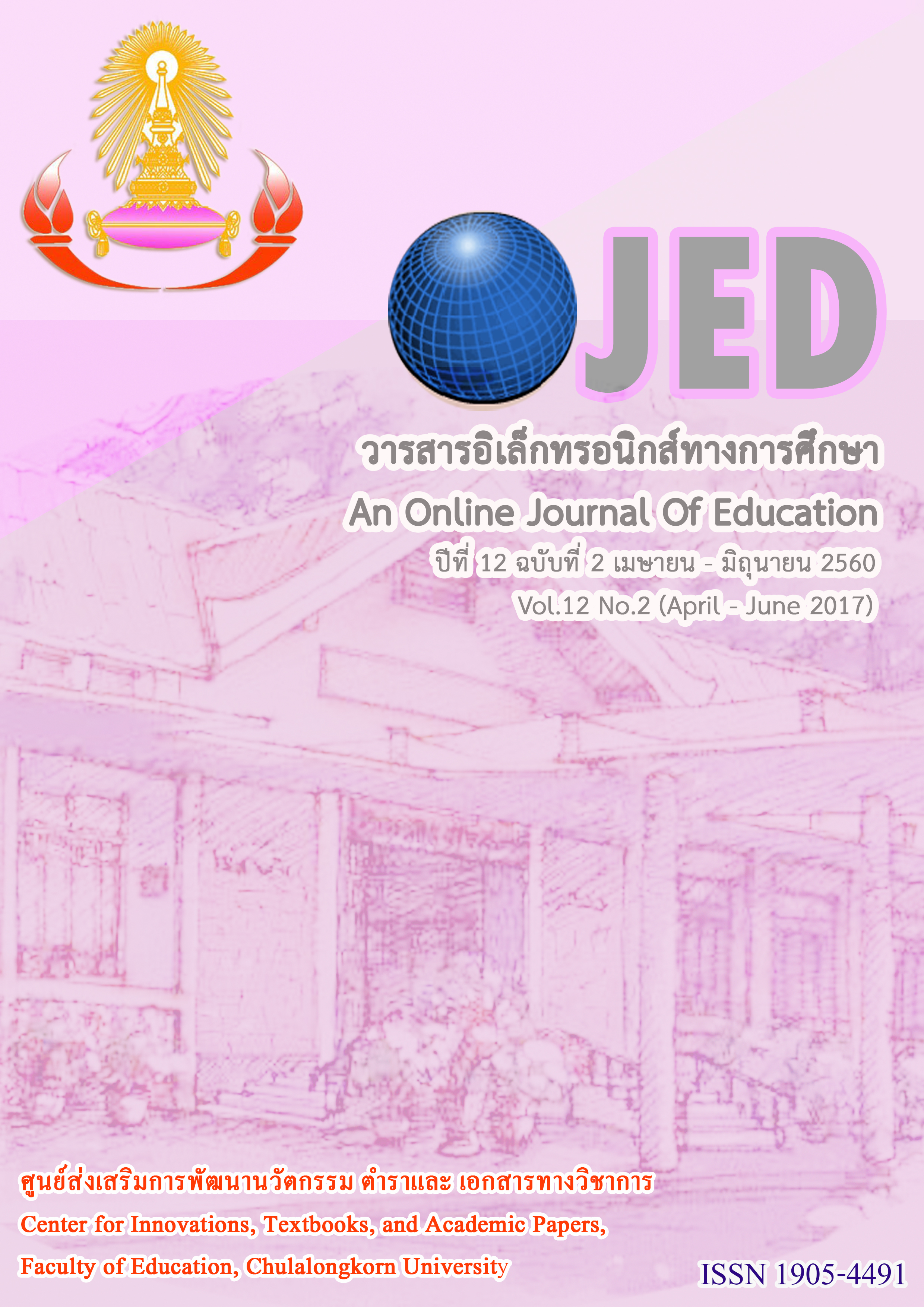การพัฒนาแบบวัดจิตสาธารณะสำหรับนักศึกษาปริญญาบัณฑิต
Keywords:
DEVELOPMENT OF SCALE, PUBLIC MIND SCALE, UNDERGRADUATE STUDENTSAbstract
The objectives of this research were to 1) develop and validate a public mind scale for undergraduate students, 2) compare the public mind among undergraduate students with different backgrounds in terms of gender, age, year, home of origin, field of study, monthly income and club, and 3) develop the public mind scale criteria for undergraduate students. The sample consisted of 900 undergraduate students. Data analysis was conducted by using descriptive statistics and inferential statistics. The research findings were as follows: 1) The public mind scale was a situational test with indicators comprising 4 factors: volunteering in public sector, social responsibility, respect public rights and preserve public property. The public mind scale had content validity of IOC = 0.60 – 1.00 and acceptable discrimination indexes of 0.33 - 0.55. The overall reliability was 0.92. The reliability coefficients of the four subscales were 0.76, 0.76, 0.78 and 0.79, respectively. The result from the confirmatory factor analysis suggested that all models were empirically fit (chi-square= 65.86, df = 54, p = 0.13, GFI = 0.99, AGFI = 0.98, RMR = 0.01, RMSEA = 0.02). 2) The comparisons of the public mind among the undergraduate students found that females had a higher public mind than males; students aged 20, 22 and 23 years old had a higher public mind than those aged 21 years old; 2nd and 5th year students had a higher public mind than 4th year students. Students from Science, Humanities and Social Sciences fields had a higher public mind than Health science. Students attending arts and music clubs had a higher public mind than those attending academic clubs and those who are not members of any clubs. Students with income lower than 15,000 Baht had a higher public mind than those with incomes over 15,000 Baht. However, the home of origin of undergraduate students did not impact their public mind. 3) The criteria of the public mind scale for undergraduate students were developed using the normalized T-score. The volunteering in public sector subscale had a raw score between15-49 (T17.39 - T82.61), the social responsibility subscale had a raw score between16-36 (T21.55 - T66.72), the respect public rights subscale had a raw score between19-48 (T17.39-T68.81), and the preserve public property subscale had a raw score between17 - 40 (T20.65 - T67.13).




